Read about learning outcomes and transversal skill development through school-community projects
The MOST project aimed to support students and citizens in Europe to develop scientific knowledge, transversal skills and competences in working scientifically. The project opened up formal science education to the citizens and established partnerships between schools and their communities to work together on environmental school-community projects (SCP) which directly affect their environment. The accompanying evaluation examined the extent to which the MOST project achieved its objectives, assessed the short-term impact of the project, and examined the SCPs from a systemic perspective (what went well and what did not) to provide guidance for implementing such projects.
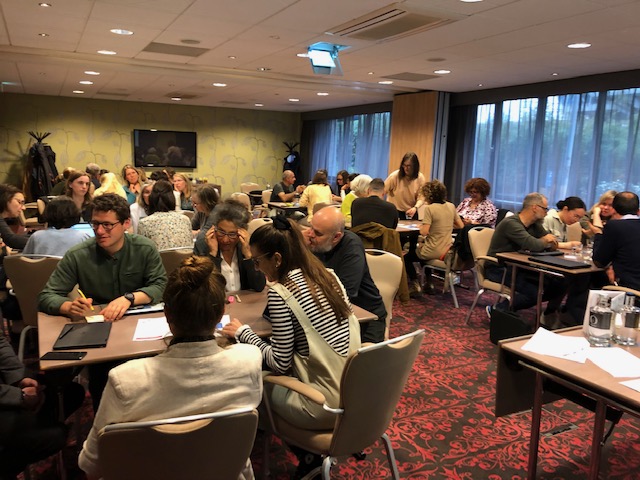
MOST consortium working on the validation of case studies. Photo: ICSE
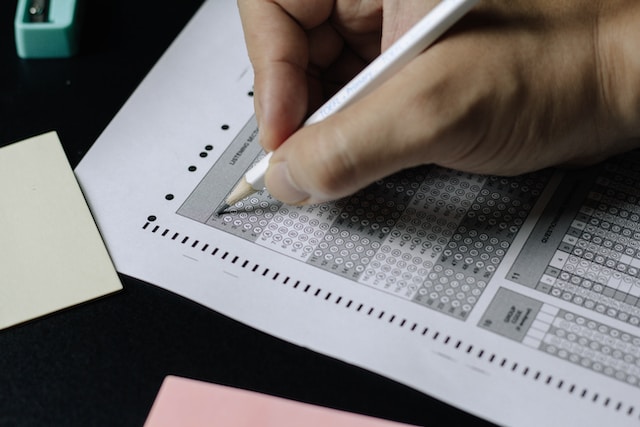
Photo: Nguyen Dang Hoang Nhu on Unsplash
The concept underlying the evaluation provided a research design and a collection of evaluation instruments that fulfill the purpose of the project evaluation: on one hand to measure the project’s short-term impact in terms of the promotion of science literacy, perceived relevance and positive attitudes towards science and scientific careers, as well as increased sustainability awareness and individual capacity to act on environmental issues. On the other hand, to provide a collection of multiple case studies from ten European countries, illustrating how School Community Projects (SCP) may be articulated to adapt to different regional contexts, as well as barriers and supportive aspects for their successful and productive implementation. Evaluation instruments included a template for reporting on case studies and questionnaires for the main participants (students and teachers) used either as pre/post instruments (student questionnaire) or just post instruments (teacher questionnaire).
On a general level, quantitative data from the pre/post evaluation of different SCP show positive effects on students’ science literacy, perceived relevance and positive attitudes towards science and scientific careers, as well as an increased understanding of sustainability problems related to waste and energy management and enhanced awareness of their personal role in solving them. However, the magnitude of these effects and the gain patterns depend on the characteristics of the SCP and the socio-cultural contexts where it was implemented.
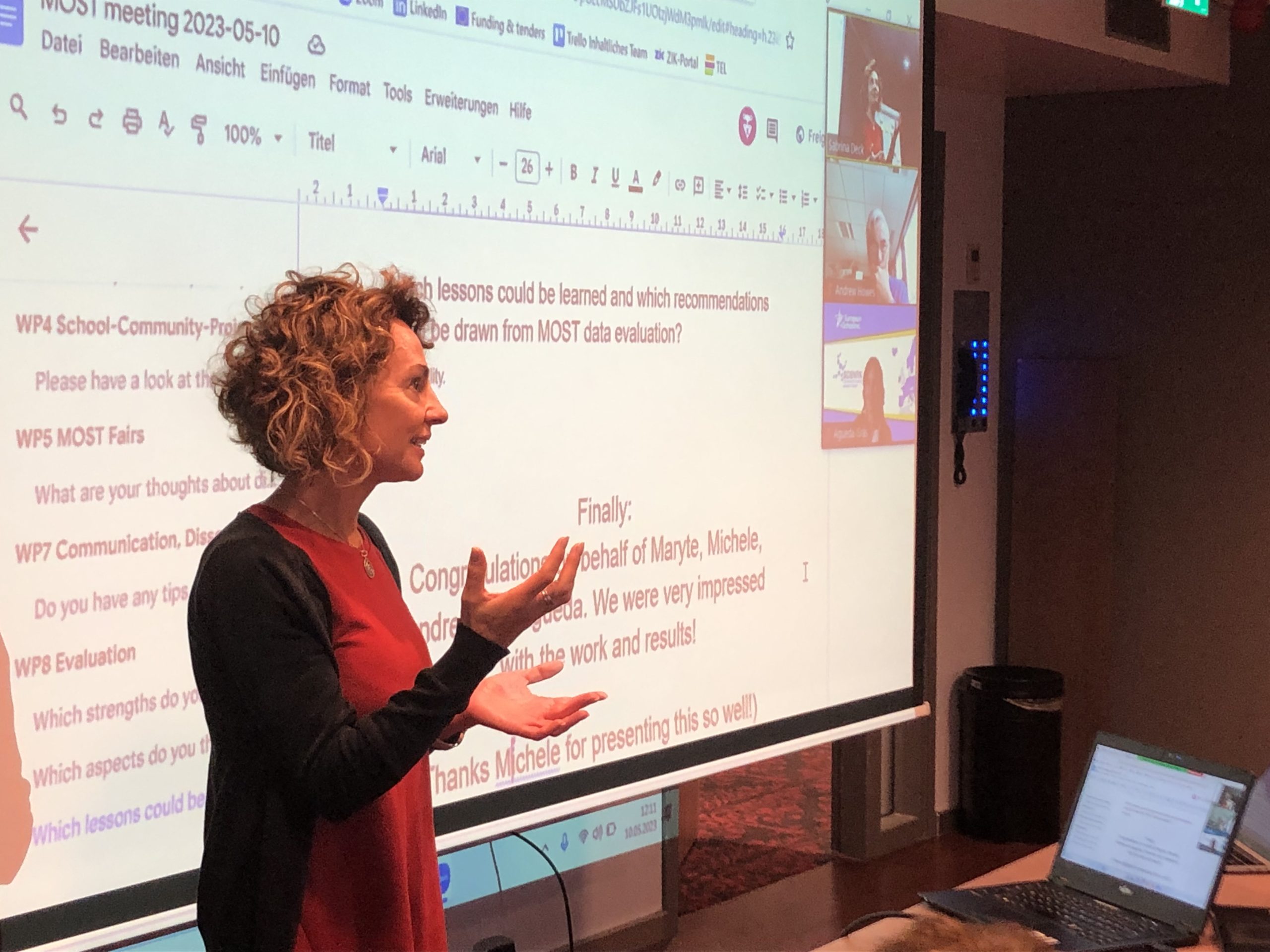
Marta Romeo Ariza (University of Jaén) discussing with members of the European Support Team about evaluation. Photo: ICSE
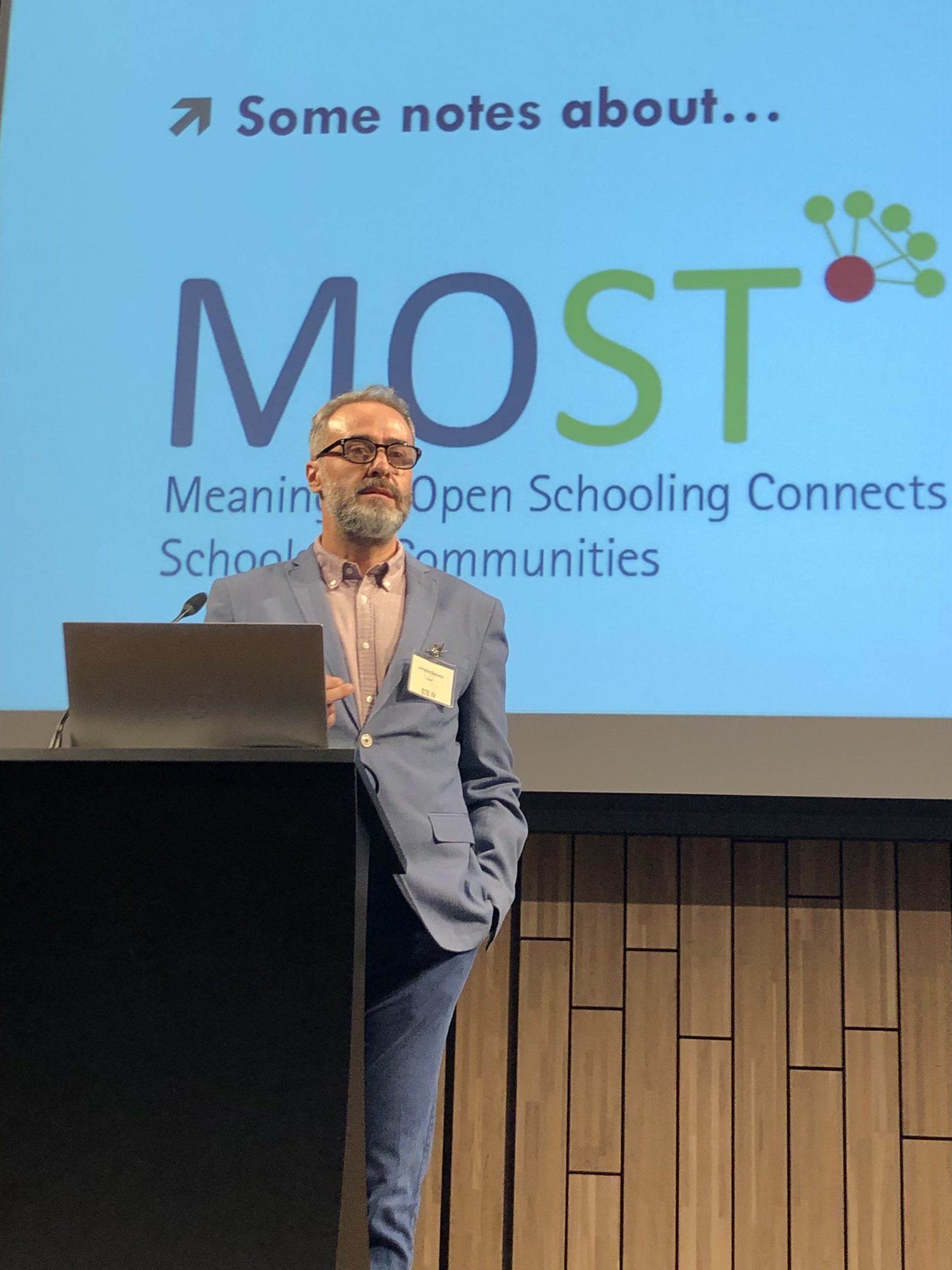
Antonio Quesada Armenteros (University of Jaén) is presenting first evaluation results at the European MOST conference. Photo: ICSE
To better understand how these contextual factors affect the consequent outcomes, we ran a qualitative analysis of the collection of regional case studies. The main aim was to look at how SCP were experienced by participants and finally, what the key features of successful SCPs and the main barriers for a successful implementation were. Regarding the first question, the content analysis of participants’ quotations revealed a predominance of feelings of pride and enjoyment and a sense of relevance and impact of what had been achieved. In relation to the characteristics of good SCPs, the qualitative analysis shows the importance of planning in advance and getting the school and community support, as well as linking the project to both local problems relevant to those involved and the school curriculum. Participants also expressed a desire to share and disseminate results, to keep on working in this way and to do more about the issues approached in a near future. Regarding the main barriers for a good implementation, teachers usually refer to lack of time or experience, a rigid school curriculum and organization and sometimes, difficulties to collaborate with other colleagues and engage external agents. They require recognition to their efforts and bigger support and flexibility to run such projects.
In relation to students’ learning outcomes, the complementary qualitative analysis of teachers’, students’ and parents’ perceptions provided nice evidence of how SCPs offered meaningful contexts to apply mathematics and science content knowledge and skills to solve relevant local problems. Moreover, it revealed to what extent these kind or projects make students develop interesting transdisciplinary skills related to teamwork, communication, creativity, and critical thinking. Finally, participants’ quotations illustrated how those experiences helped students understand the basis of some sustainability problems and made them engage in active mitigation actions or the search for solutions.
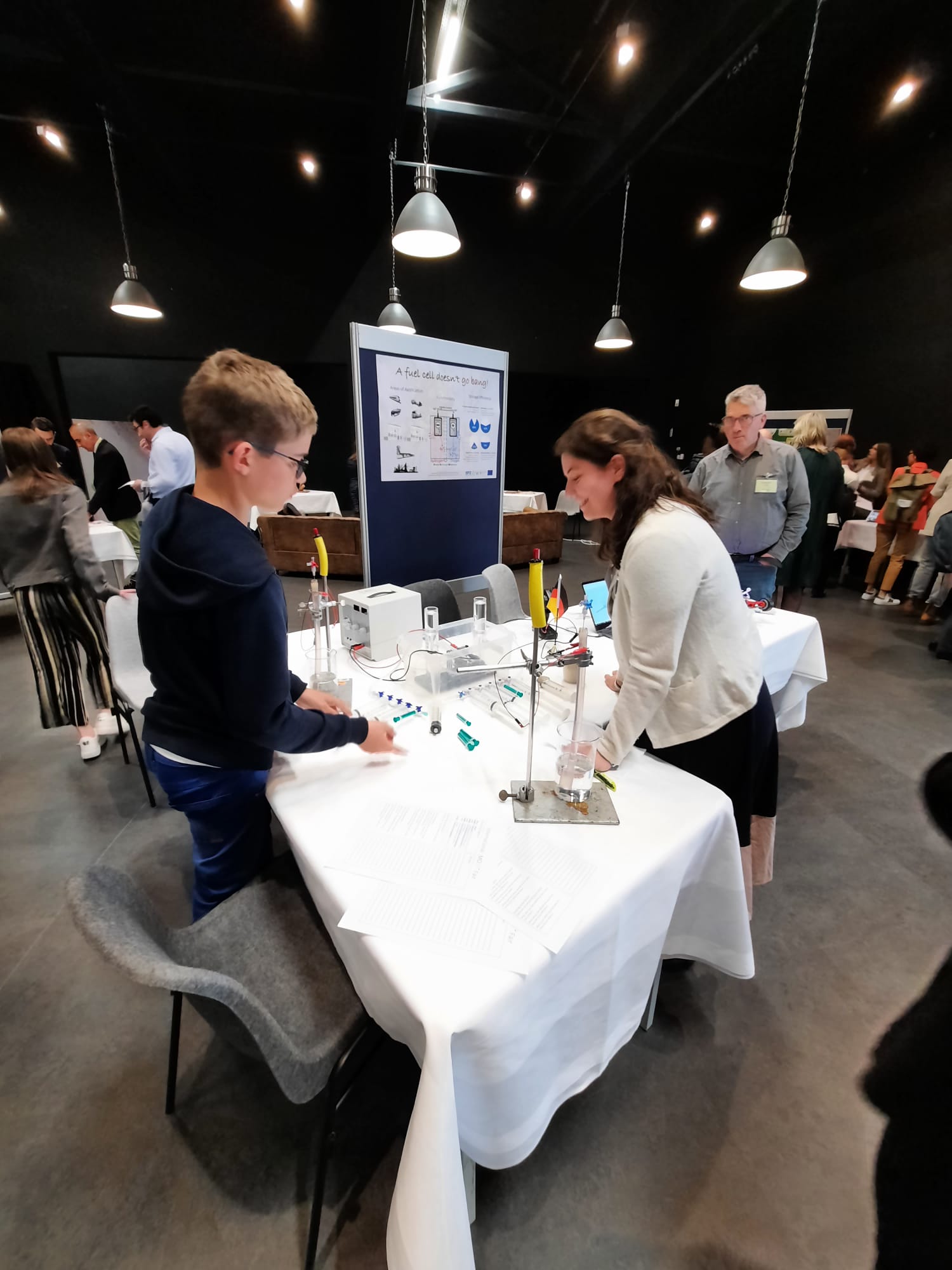
SCP participants from Germany proudly present their project result: A remote-controlled car powered by a fuel cell. Photo: ICSE
